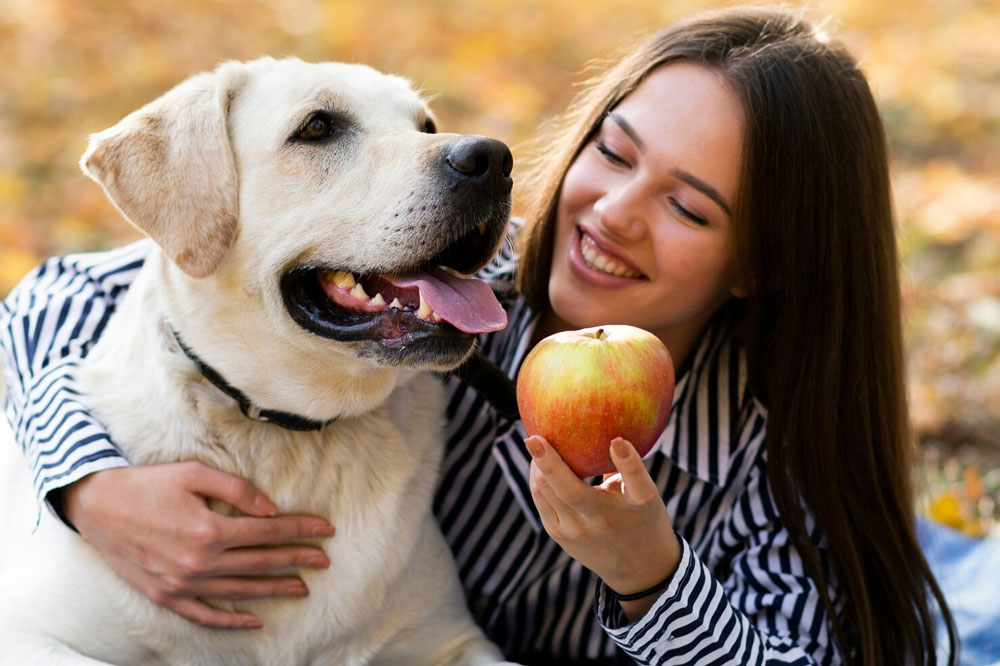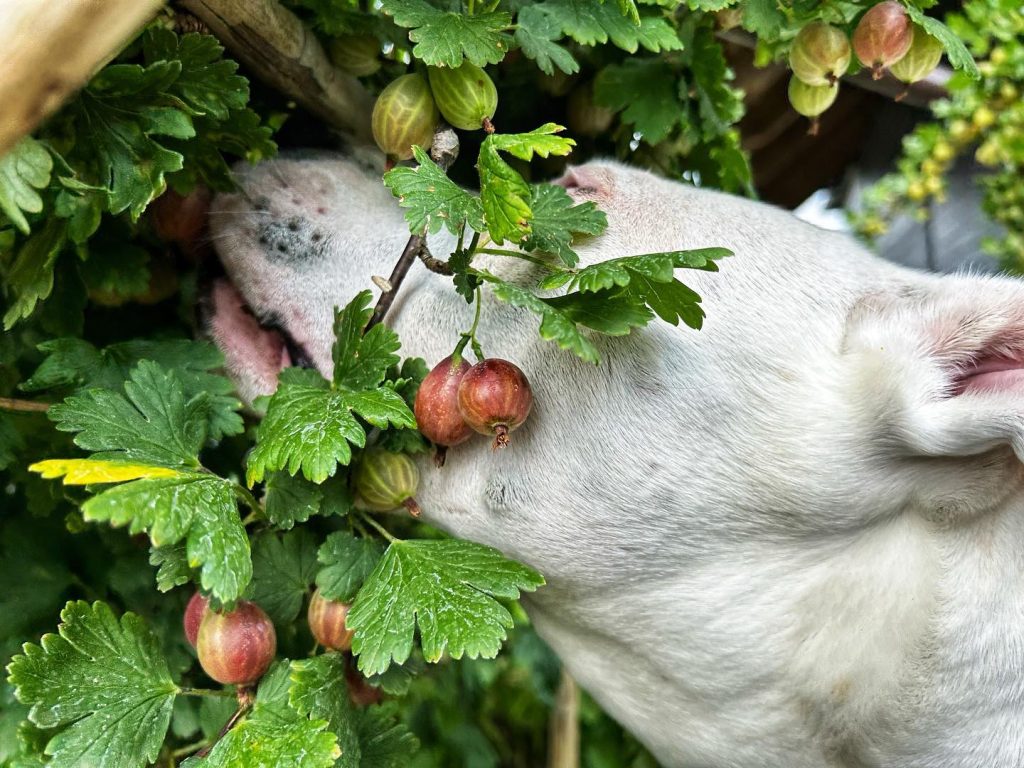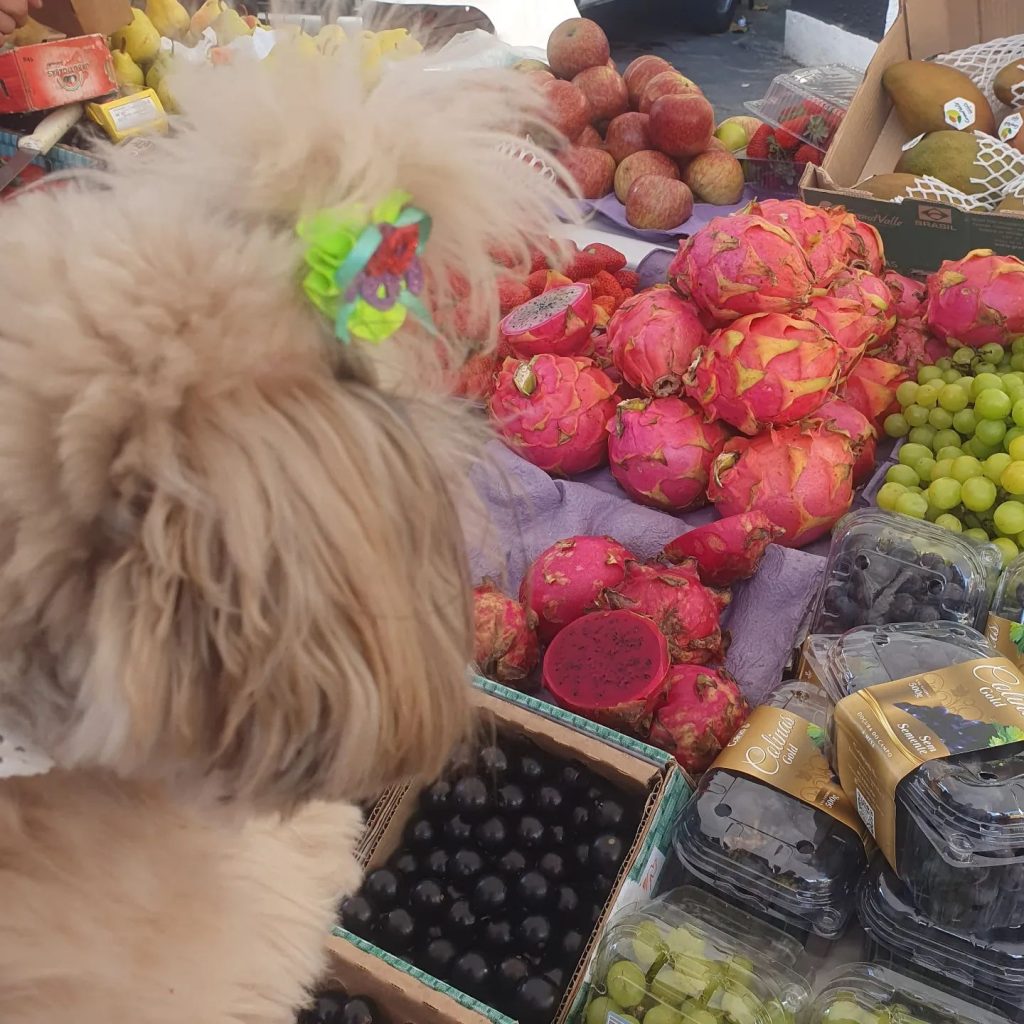
Introduction
When treating our furry friends, fruits can be a nutritious and delicious snack. However, it’s crucial to distinguish between what’s safe and what could potentially harm our dogs. This article aims to shed light on the diverse range of fruits that can be safely incorporated into your dog’s diet and those that should be avoided. Understanding the nutritional benefits and the right way to prepare these fruits can ensure your pet enjoys these treats without any adverse effects.
Understanding Safe and Unsafe Fruits for Dogs
Before diving into the world of fruity treats, it’s essential to recognize that dogs have different digestive systems than humans. Not all human foods, including fruits, are suitable for dogs. Some fruits can offer health benefits such as vitamins, minerals, and fiber, contributing to your dog’s overall well-being. On the other hand, certain fruits contain substances that can be toxic to dogs, leading to health issues ranging from mild discomfort to severe poisoning. Therefore, knowing which fruits are safe and which are not is the first step in responsibly incorporating these snacks into your dog’s diet.
Safe Fruits to Feed Your Dog: What Fruits Can Dogs Eat
Incorporating fruits into your dog’s diet can be a great way to provide them with essential nutrients and a sweet treat. However, it’s important to serve these fruits properly to ensure they are safe for your dog to consume. Here, we’ll explore a variety of fruits that are generally considered safe for dogs when prepared correctly.
Apples (minus seeds and core)
Apples are a fantastic source of vitamins A and C and fiber for your dog. They are low in protein and fat, making them the perfect snack for senior dogs. However, the seeds should be removed as they contain cyanide, which can be harmful. The core can also pose a choking hazard, so it’s best to slice the apple into bite-sized pieces.
Bananas
Bananas are a great low-calorie treat for dogs. They’re high in potassium, vitamins, biotin, fiber, and copper. They are low in cholesterol and sodium, but bananas should be given as a treat, not part of your dog’s diet, because of their high sugar content.
Blueberries
Blueberries are a superfood rich in antioxidants, which prevent cell damage in humans and canines alike. They’re also packed with fiber and phytochemicals. Offering your dog a few blueberries is a great way to provide them with these nutrients.
Mango (without the pit)
Mangoes are packed with vitamins A, B6, C, and E, which benefit your dog. However, the pit should be removed as it can be a choking hazard. Additionally, mangoes have a high sugar content, so they should be given in moderation.

Oranges (in small quantities)
Oranges are OK for dogs to eat in small quantities. They provide vitamin C, potassium, and fiber; their sweet taste appeals to many dogs. However, the citric acid in oranges can cause dogs to have an upset stomach, so they should be given in moderation.
Peaches (without the pit)
Peaches can be a great source of vitamin A and fiber for dogs. However, the pit contains cyanide, so it must be removed before giving the fruit to your dog. As with other fruits, peaches should be given in moderation due to their sugar content.
Pears (cored)
Pears are high in copper, vitamins C and K, and fiber. Cut pears into bite-sized chunks and remove the pit and seeds first, as the seeds contain traces of cyanide.
Pineapple
A few chunks of pineapple are a great sweet treat for dogs. Pineapple is full of vitamins, minerals, and fiber. It also contains bromelain, an enzyme that makes it easier for dogs to absorb proteins.
Strawberries
Strawberries are full of fiber and vitamin C. They also contain an enzyme that can help whiten your dog’s teeth as they eat them. They should be given in moderation, as they contain sugar.
Watermelon (without seeds and rind)
Watermelon comprises 92% water, so it’s a great way to hydrate your dog on hot days. It’s also packed with vitamins A, B6, and C and potassium. Seeds and rind should be removed to prevent any potential health issues.
Raspberries
Raspberries are low in sugar and calories but high in fiber, manganese, and vitamin C. They’re OK for dogs in moderation, primarily due to their small size and minimal risk of causing gastrointestinal upset.
Pumpkin (plain, without spices)
Plain, cooked pumpkin is safe for dogs in moderation. It’s a good source of fiber and beta-carotene, which the body converts to vitamin A. Do not add spices to the pumpkin you serve your dog.
Each of these fruits can offer various health benefits when served correctly. However, it’s always important to gradually introduce new food into your dog’s diet to monitor their reaction and ensure they don’t have any adverse effects.

Fruits That Are Bad For Dogs
While many fruits are safe and healthy for dogs, some should be avoided or given cautiously. It’s crucial to be aware of these to prevent potential health risks to your furry friend.
Grapefruit
Grapefruit and other citrus fruits can harm dogs due to their high acidity and essential oils content. The bitter taste often deters dogs, but grapefruit can cause upset stomach, vomiting, and diarrhea if ingested. It’s best to keep this fruit out of your dog’s reach.
Melon (caution with seeds)
While the flesh of melons like cantaloupe is safe for dogs in small quantities, caution should be taken with seeds and the rind. Seeds can pose a choking hazard or cause intestinal blockage, and the rind can be too harsh for dogs to digest, potentially leading to gastrointestinal upset.
Coconut (in moderation due to high-fat content)
Coconut flesh and milk are not toxic to dogs but contain oils that can cause stomach upset, loose stools, or diarrhea. Coconuts are also high in fat, leading to weight gain and other health issues in dogs if consumed in large quantities. It’s best to offer coconut in small amounts as an occasional treat.
Nuts (many are toxic to dogs)
While not a fruit, it’s important to mention that many nuts are unsafe for dogs. For example, macadamia nuts are highly toxic to dogs and can cause vomiting, ataxia, weakness, hyperthermia, and depression. Other nuts, like almonds, can pose a choking hazard or cause digestive upset. It’s best to avoid giving nuts to dogs altogether.
Mandarins (high sugar content)
Mandarins, like oranges, are not toxic to dogs, but their high sugar content can lead to obesity and dental problems if consumed in excess. Additionally, the citric acid in mandarins can cause stomach upset in some dogs. If you give your dog mandarins, do so sparingly and in small quantities.
It’s essential to be cautious about the fruits you share with your dog and always err on the side of safety. If you need more clarification on a particular fruit, it’s best to consult your veterinarian before offering it to your dog.
Nutritional Benefits If Dogs Eat Fruit
Fruits can offer a range of nutritional benefits for dogs, contributing to their overall health and well-being. When chosen carefully and fed in moderation, certain fruits can be a great addition to your dog’s diet, supplementing their regular meals with valuable nutrients.
Vitamins, Minerals, and Fiber
Here’s a look at some of the critical nutrients that safe fruits can provide to your canine companion:
- Vitamins: Many fruits are rich in essential vitamins for your dog’s health. For example, vitamin C, found in oranges, is known for its antioxidant properties, while vitamin A, present in mangoes, is crucial for maintaining healthy vision, skin, and coat. Vitamins such as these support the immune system and overall bodily functions, making them essential to a balanced diet.
- Minerals: Fruits like bananas and apples are good sources of minerals such as potassium and magnesium, which are essential for maintaining healthy nerve and muscle function. These minerals also support metabolic processes and contribute to your dog’s overall health.
- Fiber: Dietary fiber found in fruits like apples, pears, and pumpkins can aid in digestion and help maintain bowel health. Fiber promotes a feeling of fullness, which can be beneficial for weight management and helps keep the digestive system running smoothly.
Incorporating fruits into your dog’s diet can enhance their intake of these vital nutrients, contributing to their health and happiness. When considering what fruits dogs can eat, it’s essential to stick to those known to be safe, such as apples (minus the seeds and core), blueberries, and sliced pears. These are among the best fruits for dogs, offering a mix of vitamins, minerals, and fiber that can support their health in various ways.

Preparing Fruits for Dogs
When incorporating popular fruits for dogs into their diet, preparing and serving them safely is crucial to avoid any health risks. The first step is ensuring that the fruit you choose is safe and falls into the category of what fruit is ok for dogs? Once you’ve selected a safe fruit, such as apples, blueberries, or watermelon, it’s essential to wash it thoroughly to remove any pesticides or chemicals from the skin. Remove these parts for fruits with pits, seeds, or hard cores, such as peaches, cherries, and apples, as they can be choking hazards or contain harmful substances. Cutting the fruit into manageable, bite-sized pieces can help prevent choking and make it easier for your dog to digest. Remember, even safe fruits should be given in moderation as a treat, not a replacement for their regular diet, to ensure your dog maintains a balanced and nutritious diet.
How to Serve Fruits Safely
Ensuring the safe consumption of popular fruits for dogs involves more than just choosing the suitable types; it’s also about how you prepare and serve them. To ensure the fruit is safe for your dog, thoroughly wash it to remove any surface chemicals or pesticides. For fruits with inedible or dangerous parts, such as apples and peaches, removing the seeds, core, or pits, which can be toxic or pose choking hazards, is crucial. Cutting the fruit into slight, bite-sized pieces can further prevent choking and facilitate easier digestion for your dog. Serving fruit in moderation is vital to prevent any upset to their regular diet and ensure they receive a balanced intake of nutrients. Following these steps, you can safely incorporate fruits into your dog’s diet, providing them with a tasty and nutritious treat.

What to Do If Your Dog Eats Toxic Fruits
Immediate Steps and When to Contact a Vet
If your dog ingests toxic fruits, immediate action can be critical. Initially, monitor for signs of distress, such as vomiting, diarrhea, or unusual lethargy. These symptoms can indicate a reaction to the toxic fruit. If any of these signs are observed or your dog has consumed a harmful fruit, you must contact your veterinarian immediately. While dogs can eat strawberries and other healthy fruits for dogs safely, certain fruits pose risks, and timely veterinary intervention can be crucial in preventing more severe health issues.
Pet Poison Hotlines
- ASPCA Animal Poison Control Center (APCC): (888) 426-4435
- Pet Poison Helpline: (855) 764-7661
- National Animal Poison Control Center (NAPCC): (900) 680-0000
Additional Tips for Dog Health
- Ensure regular veterinary check-ups.
- Maintain a balanced diet with appropriate dog food.
- Provide daily exercise tailored to your dog’s needs.
- Keep up with vaccinations and parasite prevention.
- Prioritize dental hygiene.
- Offer mental stimulation through toys and training.
- Ensure access to fresh water at all times.
Conclusion
When done safely, incorporating fruits into your dog’s diet can offer nutritional benefits. Be mindful of which fruits are suitable and prepare them properly. Always monitor your pet’s health and consult your vet regularly to ensure a balanced diet and overall well-being for your furry companion.
Ensuring a Balanced Diet for Your Dog
A balanced diet is pivotal for your dog’s health. Include safe fruits as treats alongside high-quality commercial or vet-approved homemade meals. Balance is essential—ensure proper proportions of proteins, fats, and carbohydrates, and consult your vet to tailor the diet to your dog’s specific needs and lifestyle.
